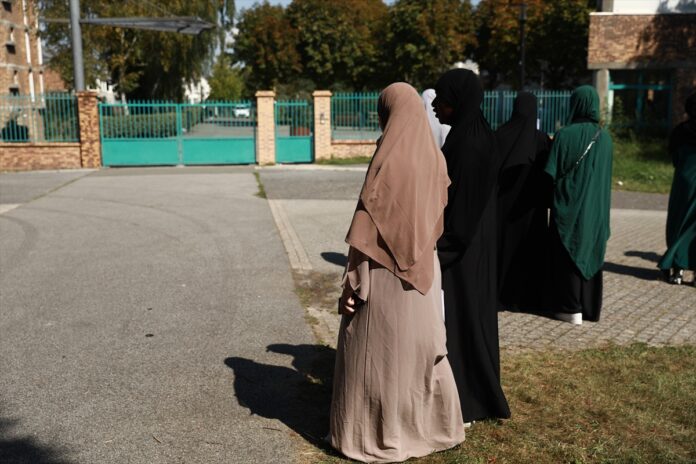A new poll has revealed the depth of Islamophobia in France with 81% of people saying they support the ban on the abaya in schools.
According to a poll by the IFOP polling organisation, 81% of French people support the bans on the abaya and qamis and consider their “religious character” undeniable (religious symbols are banned in France schools).
The poll found that:
- 81% of French people approve the ban on the abaya and qamis in public schools.
- 70% of French people say the “religious character” of these outfits is undeniable.
- 41% of French Muslims believe that these outfits have a religious aspect.
- 48% of Muslims believe they don’t have any religious aspect.
The poll comes after France’s highest court ruled on Thursday that the government ban was legal.
The Council of State said it had rejected an appeal by a Muslim rights group against the government ban and said it was not discriminatory towards Muslims.
“This ban does not seriously violate and is not manifestly illegal to the right to respect for private life, the freedom of religion, the right to education… or the principle of non-discrimination,” the court said in a statement.
It also said that the wearing of abaya and qamis in schools – which soared in the last school year of 2022-2023 – fits in the logic of “religious affirmation.”
Subscribe to our newsletter and stay updated on the latest news and updates from around the Muslim world!
The government ban also prohibits students in public school buildings from conspicuously wearing signs or outfits of adherence to any religion, the statement also read.
Vincent Brengarth, a lawyer for the Muslim Rights Action, had filed an appeal with the Council of State to seek the suspension of the ban on the abaya which he said violates “several fundamental freedoms.”
Earlier this week, Education Minister Gabriel Attal said that more than 60 Muslim female students refused to remove their abaya at schools.
The new school session began on Monday and despite the new rule, 298 students came to schools in various regions of the country wearing an abaya, he said.
The controversial move sparked a backlash against the government, which has been criticised in recent years for targeting Muslims with statements and policies, including raids on mosques and charitable foundations, and an “anti-separatism” law that imposes broad restrictions on the community.






![The History of Sylhet and British Bangladeshis [Short Film]](https://5pillarsuk.com/wp-content/uploads/2024/11/IMG_3518-218x150.png)














